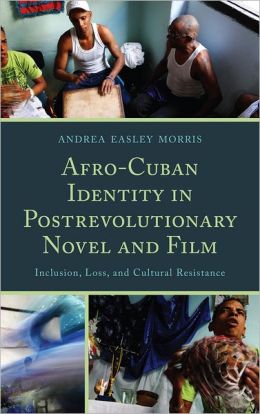Afro-Cuban Identity in Post-Revolutionary Novel and Film: Inclusion, Loss, and Cultural Resistance

Afro-Cuban Identity in Post-Revolutionary Novel and Film examines the changing discourse on race as portrayed in Cuban novels and films produced after 1959. Andrea Easley Morris analyzes the artists’ participation in and questioning of the revolutionary government’s revision of national identity to include the unique experience and contributions of Cuban men and women of African descent. While the Cuban revolution brought sweeping changes that vastly improved the material condition of many Afro-Cubans, at the time overrepresented among Cuba’s poor and marginalized, the government’s official position was that racial inequities had been resolved as early as 1962. Although a more open dialogue on race was cut short, the work of several novelists and film directors from the late 1960s and 70s expresses the need to explore what was gained and lost by Afro-Cubans in the early years of the revolution, among them Manuel Granados, Miguel Barnet, Nivaria Tejera, Sara Gómez, César Leante, Tomás Gutiérrez Alea, Sergio Giral, and Manuel Cofiño.